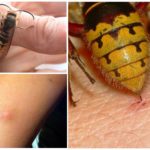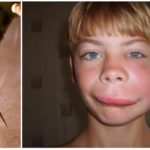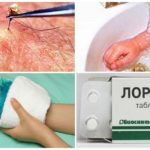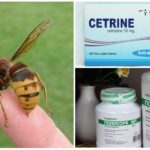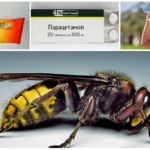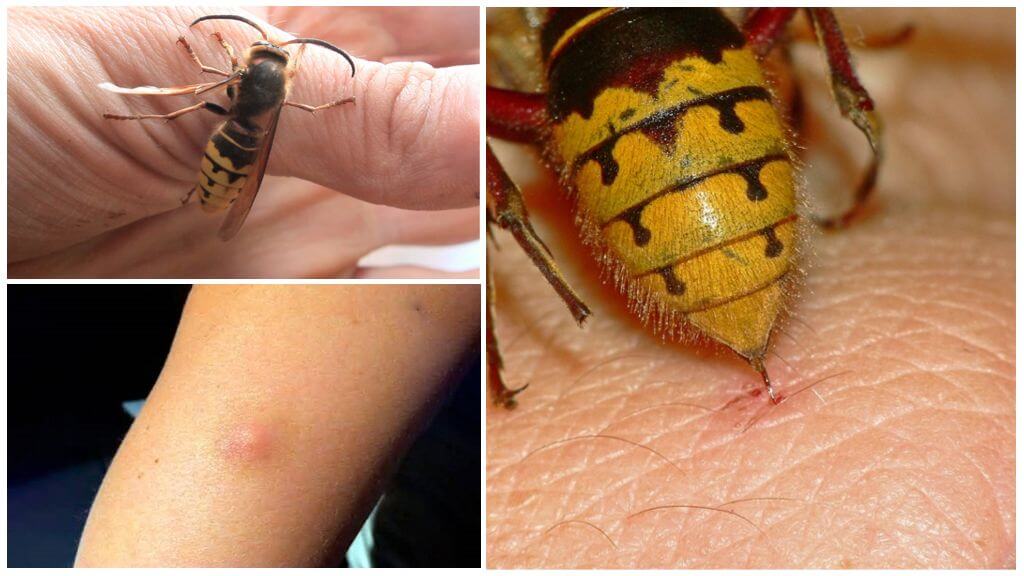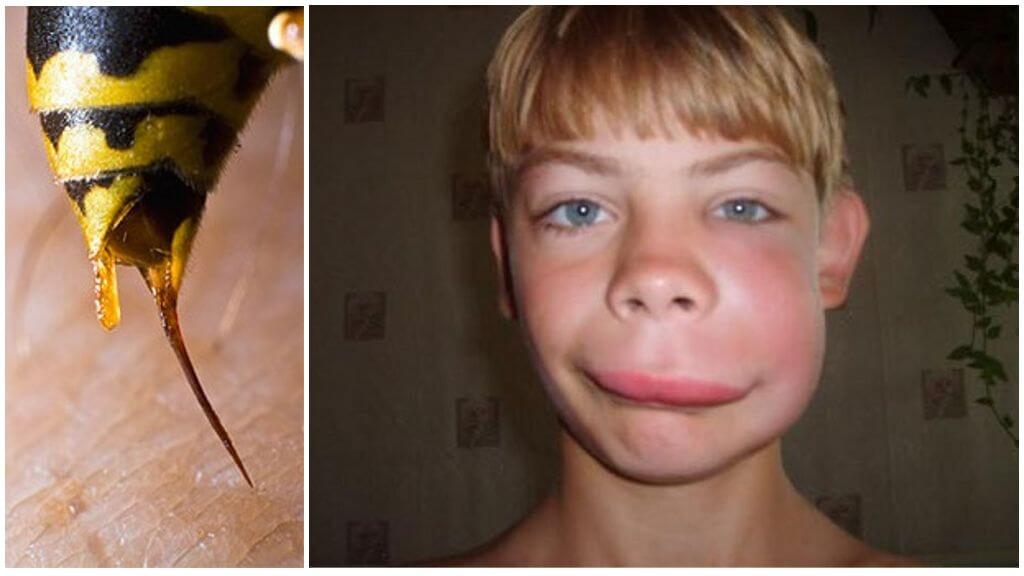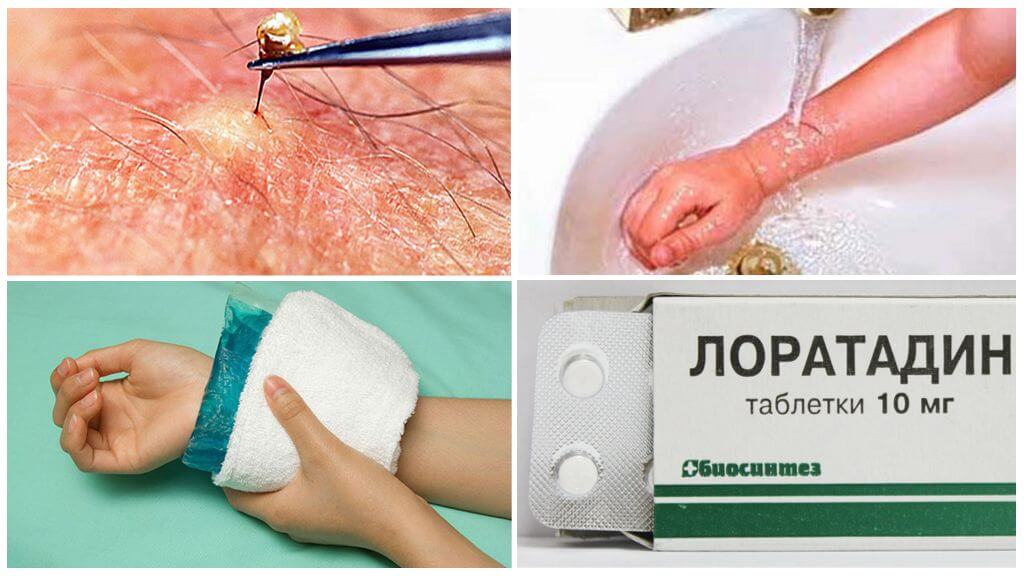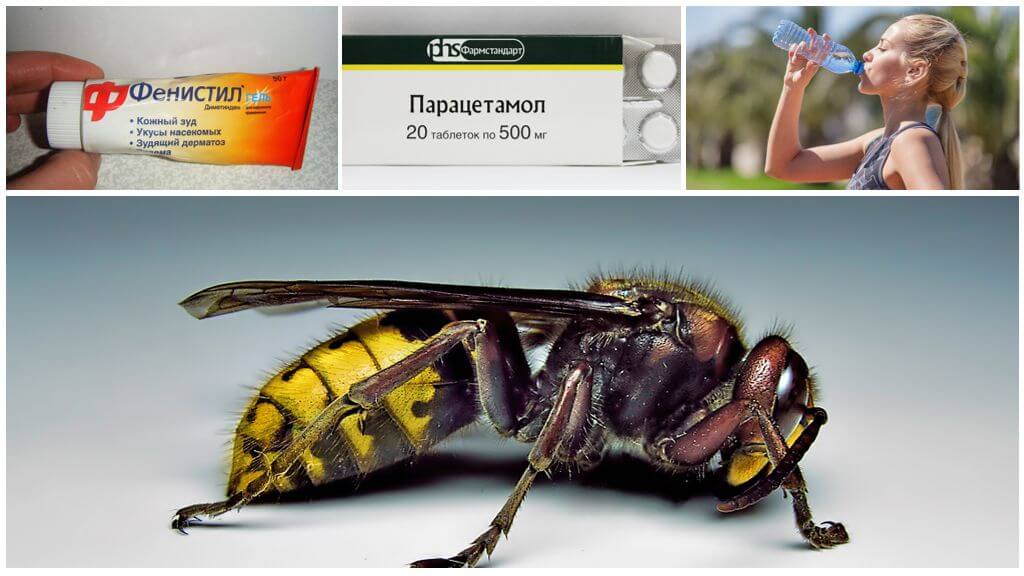What to do if bitten by a hornet
Content
- Hornet bite
- Effects of a hornet bite
- First aid after bite
- Allergy Medicines
- Treatment after bites
Who are the hornets
Hornets belong to hymenoptera predatory insects wasp familywhich they resemble and their appearance. Their size and the effects of the bite depend on the variety: the European species is up to 30 mm in length, but Asian giants can reach 55 mm. It is the latter that pose the greatest threat to human health and life, since they carry a very strong toxic poison in their sting.
Hornets They are also tireless builders, building bark from pieces nestssimilar to cocoons that can be hung in the forest on trees, in hollows or near human habitation: in the attic, in the barn, etc. In such houses, the female lays eggs, and all working individuals are engaged in prey and food for insatiable and fast-growing offspring .
How and what bites the hornet
The weapon of defense against the attack of enemies at the hornets is a sting located at the bottom of the abdomen, and only in females. It is designed in such a way that an insect can sting or bite several times in a row.
One of the main questions - whether hornets bite for no reason and whether they can attack people unexpectedly, require detailed explanation.An insect can never bite just like that; it usually attacks only when it threatens its life or a colony if someone has disturbed the nest.
When a person just passes by and does not touch the hornet, he will never attack himself. But in the case of sudden movements, attempts to kill or catch him, he will not only bite the offender, but also with the help of pheromones secreted during the introduction of the sting, will summon all his fellows to help. And then the attack of a whole flock is possible, which is able to sting the victim to death.
On a note!
Every year, 70-100 people in Asian countries die from the bites of hornets, which most often occurs during the attack of a large family and the ingestion of a large amount of poison. How many bites are deadly for a person? For healthy people who do not have allergies, more than 20 insect sting injections are most dangerous.
What does a bite look like
With the introduction of the sting, the hornet injects into the wound a toxic substance in the amount of 0.5-2 mg, which consists of histamine and other toxins that cause an acute negative reaction in the victim's body.
After this, certain initial symptoms immediately become noticeable:
- redness and swelling of tissues in the bitten place, as seen in the photo of the hornet bite;
- severe pain is felt at the bite point and the skin (papule) turns pale;
- swelling can spread to neighboring areas, so if you bite your finger, swelling goes to the whole arm, if the lower limb is injured, then the tumor covers the entire leg;
- may cause tachycardia and blood pressure surges, often downward.
Important!
The signs listed above are determined in 96% of people who have been bitten by the hornet, and only 4% belong to those “lucky ones” who have no negative symptoms and no treatment is necessary.
If we compare who bites the hornet or wasp, it depends on the individual reaction of the organism and the type of insect. European predators sting less painful than Asian giantsbut compared to bee stings and wasps sensations are still more acute and painful.
Consequences of a bite
If a person has suffered who has a predisposition to allergic reactions, then more severe signs of poisoning and severe intoxication are added, as can be seen in the photo of the effects of a hornet bite:
- nausea, vomiting possible;
- a sharp decrease in temperature of the extremities, increased sweating;
- The blue of the face, eyelids, neck and ears, swollen lymph nodes;
- tissues around the wound begin to swell strongly;
- dyspnea or asthma may occur;
- dizziness, difficulty speaking and loss of consciousness, which is often manifested in children or adults who have weak immunity;
- signs of urticaria: red spots throughout the body, peeling of the skin.
The condition of the patient and its severity depends on the immune system and the state of the organism, on the age. The hornet bite is especially dangerous for a person who has a tendency to allergies, which may have complications such as angioedema, when laryngeal swelling and choking occurs, or anaphylactic shock. With a strong increase in heart rhythms, even cardiac arrest is possible. Such situations are deadly and require urgent medical assistance.
Important!
If the attack of deadly insects occurs repeatedly, then the consequences for the organism will necessarily be more severe compared to the first case. Also, a strong negative reaction is observed if the hornet bit the child because of an imperfect immune system. For the state of the victim, the place where the hornet stung also matters.Bites in the head or neck, as well as in areas where arteries and large blood vessels pass, are most dangerous.
First aid after bite
If an attack of a black-striped big wasp on a person has occurred, then it is necessary to give him first aid as soon as possible at the hornet bite:
- Move away with the victim away from the site of the insect attack, plant and loosen tight-fitting clothing (collar, belt, etc.).
- Visually inspect the affected area to detect the stinger left and remove it from the skin with tweezers.
- Try to suck the poison out of the wound as quickly as possible.
- Wash the area with cold water, treat and disinfect with alcohol, a solution of potassium permanganate or soap, wiping with a cotton swab to remove the bacteria.
- You can attach a wet piece of sugar, which will help to partially delay the poisonous liquid, but not more than 10 minutes.
- To neutralize the toxic poison for processing using acid in the form of squeezed juice of lemon, onion, cucumber or acetylsalicylic acid.
- Attach ice or frozen product wrapped in polyethylene to help anesthetize the tissue.
- Give a person an antihistamine when determining an allergic reaction: Loratadine, Dexamethasone, Suprastin, etc.
- If the bite has occurred in the throat or mouth, then the doctors should be consulted without fail, since there may be breathing problems;
- Seek help from a specialist if the condition is a concern.
Allergy Information
It is especially important to know what to do when a hornet bites at home, people who are predisposed to allergic reactions. For them, there are special rules of behavior:
- It is necessary to always carry with you an effective anti-allergenic drug, to the means of prolonged action include: Cetrin, Claritin, Erius, Fexofenadin, etc.
- Have toxins in the first-aid kit: activated or white coal, Polysorb, Smekta, Enterosgel, etc.
- To issue a special medical passport with possible reactions, where information is entered about the drugs and their effects in order to relieve negative symptoms.
- Inform relatives and friends about possible allergies to insect bites or other types of illness.
In order to properly deal with insect bites, you must clearly know what you can not do:
- rub the bitten place or put pressure on it;
- try to squeeze out the poison;
- cauterize or heat the wound and surrounding area;
- smear a bite with iodine or brilliant green;
Important!
It is strictly forbidden to take the patient inside alcoholic beverages, because they can enhance the effect of poison and swelling. It should be borne in mind that some of the consequences do not appear immediately, but on the second day after the bite. It is impossible to determine exactly how much a bitten place will hurt.
Treatment after bites
Very part of the tourists or travelers, going to nature, incorrectly collect a first aid kit. Therefore, to treat the bite of a hornet, you can use various plants that are found in the forest and will help to cope with such a problem.
Herbal remedies for a hornet bite will help remove swelling and redness:
- plantain juice and leaves;
- chopped parsley in gruel;
- aloe leaf and juice;
- dandelion juice.
Before use, all the leaves must be washed, then the selected agent should be anointed with the bite or put a gruel, then bandaged with a clean scarf. It is necessary to change the therapeutic mass every 20 minutes.
If the condition of the victim is not accompanied by allergic symptoms, then it is not necessary to consult a doctor.Negative effects after a bite can be treated independently with the help of medications:
- ointment Fenistil-gel, Soventol, Moskitol balsam, Hydrocortisone, etc. - for lubrication of the bite site, which will help to anesthetize and relieve swelling;
- with increasing temperature: antipyretic drugs;
- use more liquids: sweet tea, compotes, fruit drinks.
In order to cure the effects of a stinging insect bite as quickly as possible, it is necessary to consult a doctor who will assess the patient’s condition and prescribe symptomatic treatment. If there is an allergic reaction, he can prescribe an injection with adrenaline, which will help stimulate the heart and improve the expansion of the respiratory tract.
Prevention of Hornet Bites
In order not to think about what will happen if the hornet bites, it is best to know the rules of behavior that will prevent such a situation:
- Before starting a picnic in the forest, carefully examine the chosen place, check for the presence of stinging insects and their nests;
- if the house of the hornets' cocoon is found, move away from it at least 5 m;
- in order to avoid aggression and the attack of hornets, one should not start waving one's arms when they appear, but behave calmly;
- do not touch the nest of stinging insects, try to get them or smoke;
- it is categorically impossible to kill a hornet near its colony, because when it dies, it emits a smell that signals help to its brethren, which inevitably leads to their mass attack;
- if you want to eat fruits, you should first examine them for the presence of insects;
- The attention of hornets can be accidentally attracted using perfumes with fruity or floral scents, therefore it is better not to use them in risk areas.
A person who has been attacked by hornets may die from the bite of even one of them. Therefore, it is better to behave cautiously and not to provoke them to aggression. If it so happened that the predator attacked and bit, then the best option would be an urgent appeal to the doctor to avoid negative health effects.

